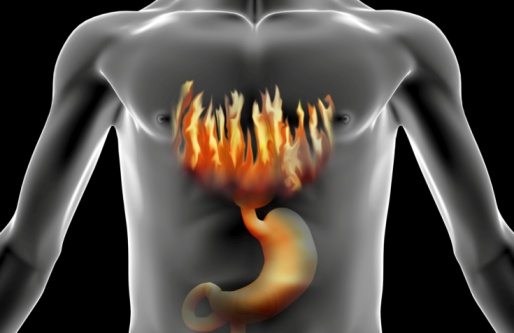By now many of you have heard through mainstream media that Proton Pump Inhibitors or PPIs carry increased risk of poor health outcomes. These medications are used to treat gastro-esophageal reflux disease (GERD)- better known as “heartburn,” inflammation of the stomach, Barret’s esophagus (caused by GERD) and stomach ulcers.
PPIs include the following:
- Nexium Aciphex
- Protonix Prevacid
- Prilosec Kapidex
- Dexilant Zegerid
In 2011 $6.3 billion of Nexium was prescribed. Ranking only second to Lipitor (atorvastatin).
The following conditions increase GERD risk:
- Obesity Smoking
- Alcohol Carbonated beverages
- Fatty foods Fried foods
- Coffee/Tea Spicy foods
- Chocolate Tomatoes
Taking NSAIDS: ibuprofen, aspirn, Aleve, Advil, etc…
Lying down shortly after a meal.
The health concerns associated with PPIs include the following:
- Cardiovascular events- Heart attack and stroke
- Bone fracture
- Kidney disease
- Pneumonia
- C. diff infections
- B12 deficiency
https://www.ncbi.nlm.nih.gov/pmc/articles/PMC2886361/
Some of these risks are better understood than others, but the one getting the most attention lately is cardiovascular events. We’ve had several observational studies that are showing increased risk of heart attack and stroke. These are studies that look back in time by using data gathered from large institutions such as the VA health system. Observational studies cannot prove that a treatment causes a problem, they can only associate that people taking a medication such as in this case PPIs experienced more negative events. The mainstream media often fails to mention that people taking PPIs are often in poorer health than those not taking them so they are at greater risk of poor health outcomes. Obesity and unhealthy lifestyle are the most common causes of GERD. Therefore we would expect a higher rate of illness and death in these folks anyway.
So what are a patient and doctor to do?
We need prospective studies. Prospective studies go forward in time and if statistically designed properly are the best way to get to the bottom of these types of issues. Unfortunately, we simply don’t have them yet and it may be difficult to actually conduct them. We do know that potential risks from PPIs are dose related- the more one takes, the greater the risk and vice versa. So reducing the dose of PPIs is a reasonable strategy if done in partnership with a doctor. Using PPIs for short term treatment when possible, substituting over the counter H2 blockers – (Ranitidine and Tagamet) in place of PPIs when appropriate and even using a lower dose of PPI by combining it with an H2 blocker are reasonable strategies. H2 blockers have not been shown to carry the risk concerns that we have for PPIs.
We need to keep in mind that before PPIs there treatments physicians could offer patients with severe GERD, peptic ulcer disease and Barrett’s esophagus was not ideal. The risk of death from those diseases far outweigh the risk of using a PPI. Furthermore, PPIs are essential in the treatment of H. Pylori a bacteria that causes stomach ulcers and if left untreated increases the risk of stomach cancer.
Physicians and patients, given the data we have now, should use PPIs with caution and short term (14 days) if possible. Patients should work closely with their doctor to manage their condition. Finally, much more emphasis needs to be placed on Lifestyle and weight loss.
Consuming a whole food…non-processed plant based diet not only leads to weight loss and reducing the risks from the most common causes of death in the United States, but in most cases greatly help in the treatment of GERD.
If you found this post helpful, please Like us on Facebook and share with friends to get the word out.
https://www.facebook.com/Optimum-Health-586197668253733/
To your health,
David R Miloy MD

